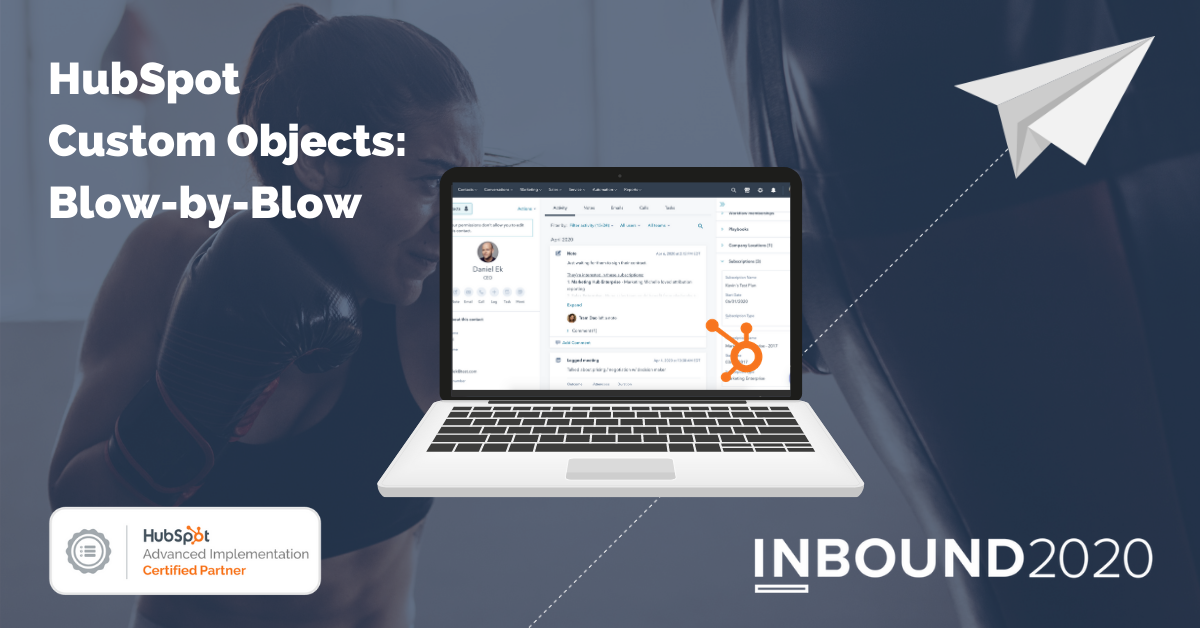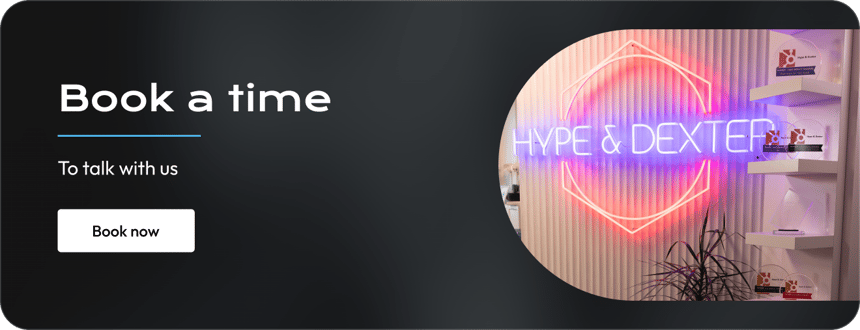Brand new to 2020 and in line with HubSpot's game changing Sales Hub Enterprise roll out is a feature the H&D team are particularly excited to announce; HubSpot Custom Objects. Before this announcement, custom objects was the single, biggest blocker for businesses moving from their old, less user friendly CRM.
The reason for this roadblock is simple; not all companies operate in a way that fits the labels of contacts, companies or deals, and that's been a huge challenge in terms of CRM implementation for many business.
As we're a very sales focussed agency, this release is an incredibly powerful tool for us and is not only great for the sales teams we work with - it also unlocks a huge amount of potential data for the Marketing team to really drill down on, to improve lead generation and conversion.
With that said, let's unpack the new custom objects feature and exactly why it's going to have a huge impact on sales teams globally.
Skip to a Specific Section:
- The Old Objects Field
- Introducing HubSpot Custom Objects
- What You Need to Know
- Custom Object Use Cases
- How You Can Take Advantage of Custom Objects
The Old Objects Field
We won't spend too much time here, but to give an overview of what we we're working with and what a CRM without custom objects prior to 2020 looked like, let's jump into the common challenges sales teams faced before this new release.
Often during our CRM implementations we'd find our enterprise customers coming to us with questions such as;
“Can we build a custom object in our HubSpot instance, similar to certain other enterprise CRMs?”
or even statements like;
"Contacts, companies and deals don't really sit within the framework of how our business operates."
More often than not, our solution has always been to find workarounds for these issues to ensure that the CRM suits their unique needs. These ranged from Timeline API Integrations to allow HubSpot records to update with new data, to setting up an Events API to allow reporting using event funnels for custom objects tracking the dates of actions that can happen multiple times.
In short, there's never been and option to create a complex object in HubSpot to match your sales team's external system, processes and labels exactly - until now.
Introducing HubSpot Custom Objects
New this year, HubSpot can finally be customised to match your businesses exact needs. Custom Objects lets you store virtually any type of data inside HubSpot - whether you are a real estate agent who needs a houses object, an agency who needs to track the other agencies you work with, or a manufacturer who needs to track inventory.
Whatever the need is, these complex and necessary adjustments can be made so that unique data can be collected and utilised - without your business having to compromise and fit a square peg in a round hole.
What You Need to Know About Custom Objects Features
Previously in HubSpot, contacts, companies, deals and ticket objects were able to be used within key sales and marketing functions, such as workflows, automation, reporting and segmentation, which is why it was so important to find solutions for businesses to fit within the framework of these objects - we didn't want anyone to miss out on absolutely crucial features.
The good news is that custom objects will have all of the same features as the existing system, allowing you to customise HubSpot to the unique needs of your business, whether you need to capture and track events, assets, projects or any other type of custom object, without losing functionality or visibility.
Custom objects will also allow you to associate and group records, such as all of the records related to a project or for B2C associate, a number of contacts with a family.

This new roll-out essentially allows HubSpot to open the floodgates to larger enterprises and compete with other upper mid-market CRM contenders.
Examples of Great Use Cases
There are a few examples of cases already where custom objects have been the perfect solution to business needs. Here are a few instances we've seen where custom objects would be an ideal fit
Primary use cases we've seen for the new 'custom objects' feature include;
- Storing Events: in B2C, often in the tourism industry, there are instances where companies need to associate contacts together as a unit, such as a family booking a place to stay on their holiday. Now, we'd be able to associate contacts as a family rather than an individual contact.
- Projects are Key: Often deals and tickets need to be associated with a project rather than a company itself. A great example of this is within the construction industry, and each project needs to go through a process from product specification by an architect or engineer, to the tender process where contractors provide multi-quotes, all the way through to product warranties and post-service support. In this instance, custom objects is perfect to pull together all of the objects associated throughout.
- Sometimes, the language is quite confusing. For example, certain companies (like charities, or coaches) who work with people, don't like to refer to things like sponsorships or a relationship with another person as a 'deal' and the language can be quite confronting or simply not make sense. Custom objects jumps over this hurdle by allowing us to tailor the labelling of 'deals' to the needs of the client that we're working with, aligning the language with the brand, vision and what the team is used to working with.
We're confident that the more we work within custom objects and adapt our current solutions to incorporate the change, the better the outcomes will be for the businesses we work with - we're genuinely pumped for this one!
Sound like something that'd help your business?
There's no doubt that this is going to ruffle some features and create positive change for a tonne of businesses, and we're stoked to be at the centre of this change. If you'd like to hear more about some of the exciting features that have recently been announced by HubSpot, you can read our articles here;
- A 2020 HubSpot Game-Changer: The Unified Platform vs. Frankenstein CRM
- Top 5 New Sales Hub Enterprise Features We’re Most Excited About (to come soon!)
If you'd rather cut to the chase and have a chat with us directly about what Custom Objects could mean for you and your business, simply hit the button below!





.jpg)
Comments